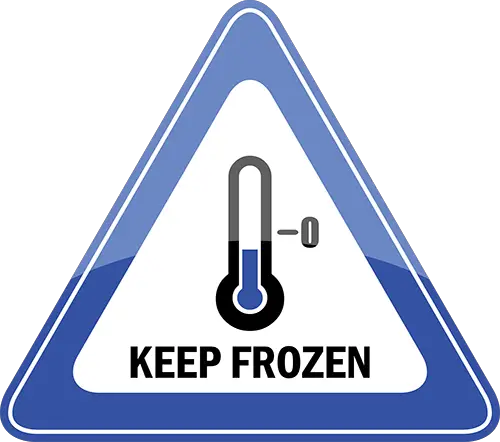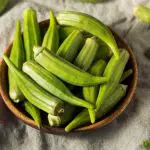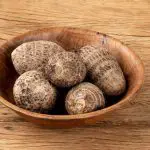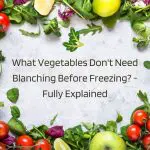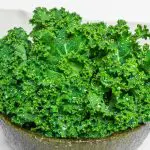Can You Freeze Vegetables? (YES! Here’s How)
Perhaps you plan on prepping your meals for the week, which include vegetables. Since freezing can extend the freshness of most food (such as meat), that means it’s fine to freeze vegetables, right?
You can freeze vegetables. But keep in mind that some vegetables—like carrots and asparagus—are better frozen than others. Also, it’s always best to blanch vegetables before freezing them.
This article will cover the best way to freeze vegetables, which vegetables freeze well, and how to use your frozen vegetables. Keep reading.
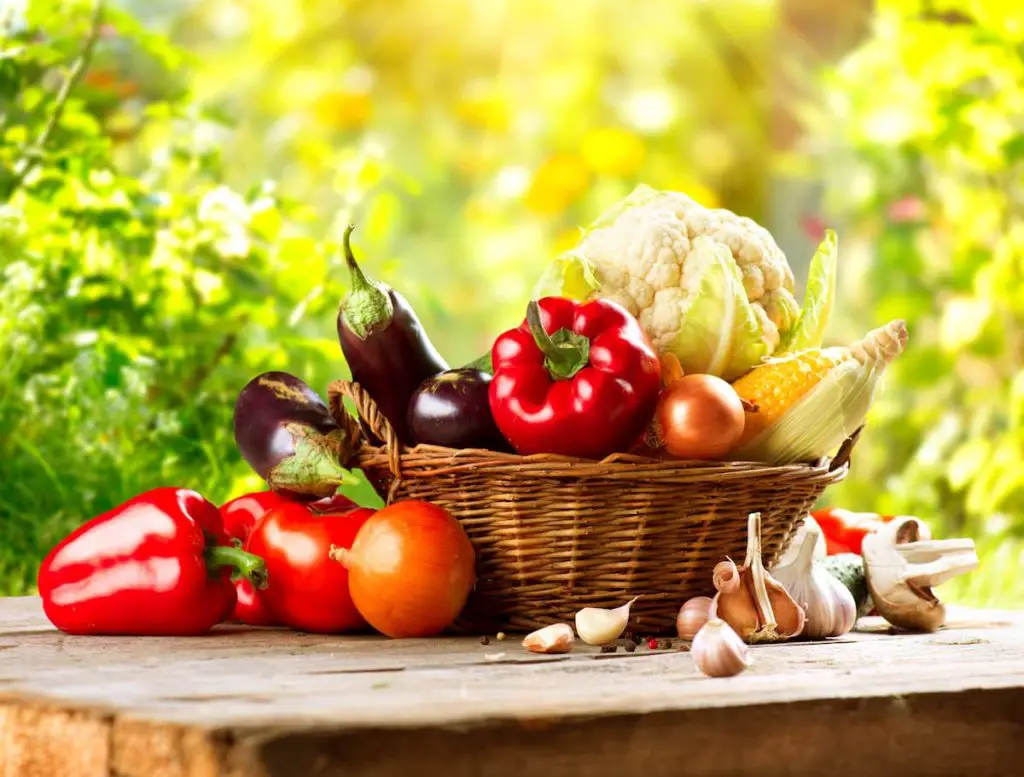
You Can Freeze Vegetables
Suppose you want to prep vegetables for this week’s meals. You want to make sure that you’ll have enough veggies to add to your dishes. Then you may consider freezing your vegetables. But keep in mind that not all vegetables are equal—some will freeze better than others.
For example, the following vegetable will do well in the freezer as long as they’re stored properly:
These vegetables last for an extended time in the freezer and are often just tossed into dishes, meaning there’s no noticeable difference between frozen and fresh vegetables.
Vegetables that won’t do well in the freezer are typically those leafy vegetables that are used raw in dishes like salads, such as the following:
- Kale
- Cabbage
- Celery
- Lettuce
- Parsley
- Spinach
Once you know which vegetables you’ll be freezing, let’s move on to the steps to freezing vegetables properly.
How To Freeze Vegetables (Blanching is The Key)
Freezing vegetables is an easy process that applies to all types of vegetables. Complete each step before storing the vegetables in the freezer for optimal results. Below are five steps to freezing vegetables you should follow.
1. Wash the Vegetables Before Freezing
Thoroughly rinse your vegetables in a colander. You should follow this step by letting your vegetables soak in a vinegar-water solution for a few minutes. Doing this is important because vegetables may have pesticides on them.
So by washing the vegetables prior to freezing them, you’ll ensure that the veggies are clean and free from any impurities.
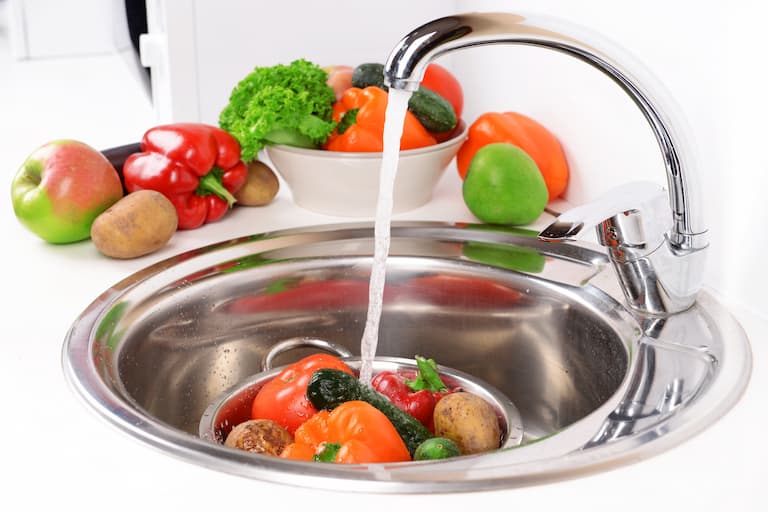
2. Cut the Vegetables to Freeze
Freezing whole vegetables is not ideal. That’s because you may not need to cook all of them at once. Also, cutting the vegetables makes storing them in the freezer easier.
That said, you’ll probably want to slice them into your preferred size and shape to ease the cooking process later when you thaw and use them.
3. Blanch the Vegetables Prior to Freezing Them
Blanching the vegetables is essential in preserving their taste and texture over time. There are three main ways to blanch your vegetables: water, steam, and microwave.
Water blanching is usually the best method. Bring a pot of water to boil and allow your vegetables to simmer for one to three minutes.
Steam blanching involves holding your vegetables over steam from a kettle or pot. This method is the most time-consuming.
Microwave blanching, although an option, is highly discouraged. This method may reduce the nutritional value of your vegetables.
4. Let the Vegetables Cool Before Placing in The Freezer
Blanching won’t take much time—2 to 5 minutes will do. Once you’re done blanching the vegetables, place them in a bowl of ice water until they’re completely cooled. Cooling your vegetables prevents them from overcooking.
5. Store, Label, and Freeze the Vegetables
Finally, store your vegetables in an airtight bag or container. It’s important to store your veggies properly to prevent moisture loss. The texture of your veggies may change if moisture escapes the airtight container or bag.
Label your airtight containers or bags with the date and any other pertinent information. Then, place them in the freezer.
How Long Do Vegetables Last in the Freezer?
Vegetables can last in the freezer for twelve months or longer as long as you freeze them properly. Freeze the vegetables in airtight containers or Ziploc bags. However, note that some vegetables may lose their quality after three months, like cabbage.
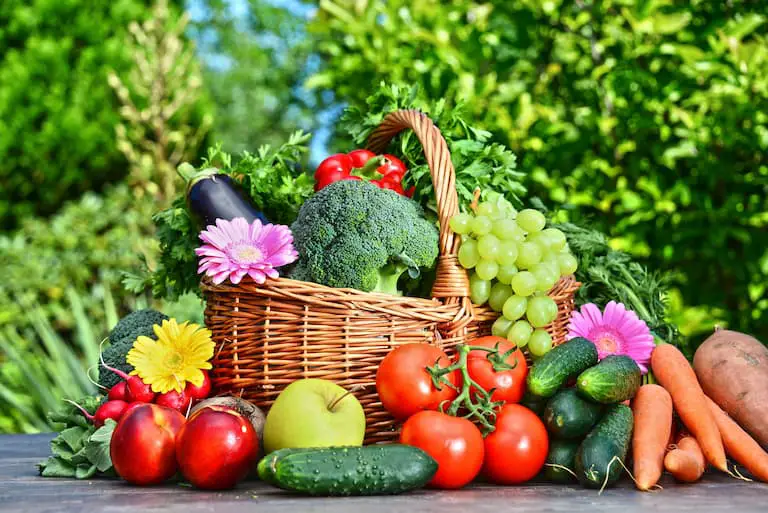
The vegetable will still be safe to eat but may not be as enjoyable.
Is It Better To Freeze Cooked or Raw Vegetables?
It’s generally better to freeze cooked or blanched vegetables rather than raw. Some vegetables, like onions or bell peppers, retain their color and consistency when frozen raw, but most don’t.
Even though you can freeze vegetables, they aren’t the ideal freezing candidates. They’ll quickly lose color and consistency if frozen raw, becoming brown and mushy. This reaction is why blanching is such a critical step in the freezing process.
Once cooked or blanched, the vegetables will keep their quality taste and texture while frozen for a lengthy period.
You Can Toss Frozen Vegetables Directly Into Your Cooking
When you’re ready to use your frozen veggies, take them out from the freezer, toss them in your favorite dish, and cook along with the rest of the ingredients.
Corn on the cob is one of the notable exceptions to this rule. It’d be best to allow corn to begin thawing at room temperature for a few minutes before cooking, but you don’t need to defrost it completely. This step ensures the corn will be fully cooked.
Boil, Fry, or Microwave Frozen Vegetables To Reheat Them
As mentioned previously, you can toss most frozen vegetables directly into your dish, and they’ll cook with the rest of the ingredients.
If you’re reheating the vegetables separately as a side, keep in mind that you’ve already partially cooked them. Blanching begins but doesn’t complete the cooking process. Because of blanching, the vegetables will reheat and cook within a few minutes.
There are three main ways to reheat frozen vegetables when you use them as a side dish: boil, pan-fry, or microwave.
Boiling your vegetables will only take a few minutes, and they’ll have a nice, soft texture.
For pan-frying, add oil to a heated pan and pour your frozen vegetables directly onto it without thawing. They’ll cook quickly and may have more crunch than if you had used the boiling method.
Microwaving your vegetables is the quickest method, but similar to microwave blanching, it may reduce the nutritional content of the vegetables.
How To Preserve Frozen Vegetables’ Taste and Texture
To ensure that your vegetables keep their taste and texture while in the freezer, follow these three practices: blanch your vegetables, use them within three to twelve months, and store them properly.
Blanch the Vegetables
It’s tempting to skip this step to save time. However, blanching is critical if you want to have a delicious and nutritionally dense meal in the future. As discussed earlier, blanching your vegetables won’t take much of your time. You’ll just need 2 to 5 minutes.
Store the Vegetables in Airtight Containers or Ziploc Bags
If you use containers to store your vegetables, make sure they’re airtight. Ziploc bags are an excellent option for storing vegetables, but you’ll want to squeeze any excess air out to prevent the vegetables from going bad.
Use the Vegetables Within 3 to 12 Months
Most vegetables stay fresh in the freezer for up to a year. As a rule of thumb, always research your specific vegetables’ freezer life to make sure you use them before their quality decreases. If possible, consume the vegetables within 3 months.
Do Vegetables Lose Their Nutritional Value When Frozen?
Vegetables don’t lose their nutritional value when in the freezer. When frozen correctly, they may be healthier than fresh vegetables. However, if frozen raw or microwave blanched, they won’t be as nutritionally dense.
Because of the chemical process vegetables undergo during the blanching step, their nutritional value often increases. Freezing preserves the vegetables’ contents.
The only exception to this rule is microwave blanching. Microwaves have proven to reduce nutritional value.
Also, if you choose to skip the blanching step and freeze your vegetables raw, their quality will lessen. This result is because of their high water content and inability to freeze properly when raw.
Can You Freeze Vegetables – Summary
You can freeze nearly any kind of vegetable. Although some vegetables, like corn and carrots, freeze better than others. In general, leafy greens don’t last as long in the freezer as other vegetables.
To properly freeze your vegetables, you’ll want to wash, cut, blanch, cool, and adequately store them before putting them in the freezer. The blanching process is critical to maintaining your vegetables’ taste, texture, and nutritional value.
